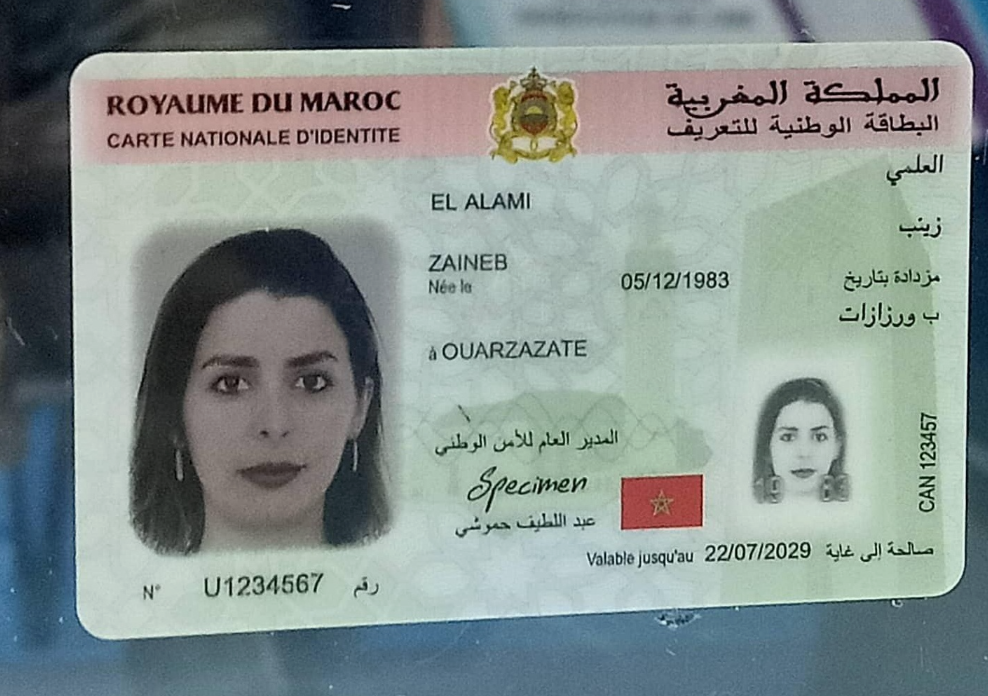A national ID is an official document issued by a government that serves as proof of a person’s identity and citizenship. It is a crucial form of identification that individuals are required to possess in many countries. The national ID contains personal information such as the individual’s full name, date of birth, and a unique identification number. This document plays a significant role in various administrative processes, including accessing public services, participating in government programs, and verifying one’s identity.
The national id serves as a reliable and standardized form of identification that helps streamline administrative procedures. It enhances security and law enforcement efforts by enabling authorities to accurately identify individuals and prevent identity fraud. Additionally, it facilitates the efficient delivery of government services by providing a standardized means of verifying an individual’s identity and eligibility.
To obtain a national ID, individuals typically need to submit an application to the relevant government agency. The application process may vary from country to country, but it generally involves providing necessary documents such as proof of citizenship or residency, proof of identity, and supporting documents like birth certificates or passports.
Once the application is submitted, the government agency will verify the information provided. This verification process often includes collecting biometric data, such as fingerprints or facial recognition, to ensure the accuracy and uniqueness of the individual’s identity. The government agency will then issue the national ID once the verification process is complete.
Benefits of a National ID
A National ID provides numerous benefits to individuals and governments alike. Let’s explore some of the key advantages:
- Streamlined Administrative Processes: With a National ID, individuals can easily and efficiently navigate bureaucratic procedures such as applying for government services, opening bank accounts, or obtaining official documents. The standardized identification system simplifies these processes, saving time and reducing paperwork.
- Enhanced Security and Law Enforcement: National IDs play a crucial role in enhancing security measures and law enforcement efforts. By accurately identifying individuals, authorities can better prevent and investigate criminal activities, track individuals involved in illegal activities, and maintain public safety.
- Facilitated Access to Public Services: A National ID enables citizens to access various public services more conveniently. Whether it’s healthcare, education, social benefits, or voting, having a unique national id number ensures that individuals can easily prove their eligibility and receive the necessary assistance.
- Promotion of Efficient Government Programs: National IDs contribute to the efficient delivery of government programs and initiatives. By accurately identifying individuals and their needs, governments can tailor their services and allocate resources more effectively, ensuring that assistance reaches those who truly require it.
In summary, National IDs streamline administrative processes, enhance security and law enforcement efforts, facilitate access to public services, and promote the efficient delivery of government programs. They provide individuals with a convenient and reliable means of identification, while also enabling governments to better serve their citizens.
How to Obtain a National ID?

Obtaining a national ID is an important step for individuals to establish their identity and citizenship. The process, however, can vary from country to country. In general, it involves several steps that ensure the accuracy and validity of the ID.
Firstly, individuals need to submit an application to the relevant government agency responsible for issuing national IDs. This application typically requires personal information such as name, date of birth, and address. It may also require supporting documents such as birth certificates or passports to verify the individual’s identity and citizenship.
Once the application is submitted, individuals may need to undergo verification procedures, which often include biometric data collection. This can involve capturing fingerprints, facial recognition, or iris scans to ensure the uniqueness and accuracy of the individual’s identity. These measures enhance the security and reliability of the national ID system.
After the verification process is completed, individuals will receive their national ID, which serves as official proof of their identity and citizenship. This ID can be used for various purposes, including accessing public services, participating in government programs, and complying with legal requirements.
It is important to note that the specific requirements and procedures for obtaining a national ID can vary significantly from country to country. Some countries may have online application systems, while others may require individuals to visit designated government offices in person. It is advisable to check the official government website or consult with local authorities to obtain accurate and up-to-date information on the process.
Document Requirements
Common document requirements for obtaining a national ID include proof of citizenship or residency, proof of identity, and supporting documents such as birth certificates or passports.
When applying for a national ID, it is important to provide the necessary documents to prove your eligibility. The document requirements may vary from country to country, but there are some common requirements that are typically asked for.
Firstly, you will need to provide proof of citizenship or residency. This can be in the form of a valid passport, a citizenship certificate, or a residency permit. These documents establish your legal status in the country and are essential for obtaining a national ID.
Secondly, you will need to provide proof of identity. This can be done by presenting your valid government-issued identification card, such as a driver’s license or a national identity card. These documents confirm your personal details, such as your full name, date of birth, and photograph, which are necessary for the national ID application.

In addition to proof of citizenship or residency and proof of identity, you may also be required to submit supporting documents such as birth certificates or passports. These documents further validate your personal information and provide additional evidence of your identity and eligibility for a national ID.
It is important to carefully review the document requirements specific to your country’s national ID application process. Ensuring that you have all the necessary documents prepared and ready will help streamline the application process and avoid any delays or complications.
In conclusion, when applying for a national ID, common document requirements include proof of citizenship or residency, proof of identity, and supporting documents such as birth certificates or passports. By providing these documents, you can establish your eligibility and identity, ensuring a smooth application process.
Verification Process
The verification process for a national ID plays a crucial role in ensuring the accuracy and uniqueness of an individual’s identity. To achieve this, various methods are employed, including biometric data collection such as fingerprints or facial recognition.
Biometric data collection involves capturing unique physical characteristics or traits of an individual that are difficult to forge or replicate. This could include obtaining fingerprints, which are unique to each person, or using facial recognition technology to analyze distinct facial features. These biometric identifiers are then stored securely and used for verification purposes.
By incorporating biometric data into the verification process, the chances of identity fraud or impersonation are significantly reduced. Biometric information provides a reliable and foolproof method of confirming an individual’s identity, as it is nearly impossible to replicate someone’s fingerprints or facial features.
Additionally, the use of biometric data enhances the accuracy of the identification process. Traditional methods of identification, such as presenting identification documents or providing personal information, can be prone to errors or discrepancies. Biometric data, on the other hand, provides a more objective and reliable means of verifying an individual’s identity.
The verification process may vary depending on the country and the specific requirements set by the issuing authority. However, the underlying principle remains the same – utilizing biometric data to ensure the accuracy and uniqueness of an individual’s identity.
In conclusion, the verification process for a national ID incorporates biometric data collection, such as fingerprints or facial recognition, to enhance the security and reliability of the identification system. By leveraging biometrics, the chances of identity fraud are minimized, and the accuracy of identification is significantly improved.
